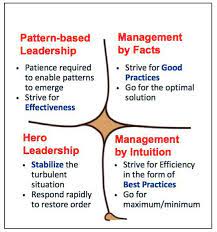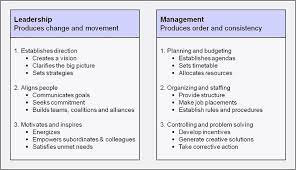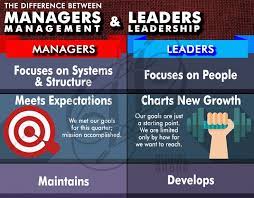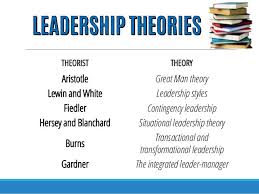7049SOH Assignment Sample – Principles of Management and Leadership 2022
An assignment essay is required to be prepared on the principles and applications of leadership and management techniques in reference to the healthcare industry. The essay will contain a thorough discussion and analysis of the leadership and management practices in healthcare in order to identify the key areas of development for an efficient leader in the industry.
The evolution of the modern healthcare system will be taken into account to present a better picture of what needs to be done immediately by the present and future leaders of the industry. The essay will analyse the context of leadership and management based on individual experiences.
The theories that can be studied in the context of healthcare management are Attribution theory, Utilisation management and Evidence-based management. The attribution theory follows an approach of learning from the mistakes of the healthcare industry and systematically removing them to improve its efficiency.
As argued by Chatterjee et al. (2018), leadership in healthcare management should be able to follow a framework where rapid changes can be made in operations to eliminate the chances of typical errors that have already been detected. From my personal experience as a virologist in a hospital, it can be said that the primary, as well as tertiary healthcare systems, have greatly improved by implementing the theory.
The patients are seen to have greater trust in the hospital management as fast responses to patient problems can be delivered. Thus, it has also been helpful to create a positive environment for healthcare workers.

Apart from the attribution theory, the primary focus of healthcare management is based on the aspect of transformational leadership. It has been found that the challenges in healthcare leadership are frequently changing in types and complexities (Chatterjee et al. 2018). Thus, the need for following leadership principles that are greatly based on the foundation of transformational leadership is felt in the healthcare industry.
As a result, behaviour simulation practices are introduced in the healthcare system along with recommendations from machine learning features for enhancing the improvement of the healthcare services being provided (Lame & Simmons, 2020). The trainee healthcare workers are trained in simulation environments that have been modelled by taking insights from real-life clinical situations.
I have found that it increases the efficiency of the healthcare workers and the management can optimise further operations of the healthcare units based on the quality of treatment and support provided to the patients.
The analysis of the leadership theories used in the healthcare industry considers the application of the Great Man Theory. According to the theory, the management can decide to select individuals as leaders who have a natural tendency and aptitude to lead people in difficult situations in an industry. As narrated by Ataman & Ibey (2021), in advancing the education and responsiveness of future healthcare professionals, transformational leadership in the light of the Great Man theory can be used as guidance.

I have found that born leaders in the healthcare industry follow the principle of adaptive leadership to cope up with the new problems emerging every day in various areas of healthcare management. It can be argued that it is helpful to formulate new policies, implement them, receive feedback and make the necessary modifications required in the system. Thus, the system efficiency of the healthcare units is improved faster under effective leaders.
Theories used by modern healthcare professionals include the theories of utilisation management and evidence-based management. I have found that utilisation management has been greatly helpful to tackle rapidly increasing cases in any healthcare unit.
For example, during the time of upsurge of Covid-19 affected patients, the hospitals have performed relatively well due to the use of utilisation management techniques. The management initially sets its priorities in serving the patients and uses its resources accordingly to deliver the most efficient services possible.
Efficient healthcare utilisation helps to increase revenues in the health economy as modern electronic data storage systems have sped up the process of tracking patient history and providing effective treatment (Barker et al. 2018). Based on utilisation management techniques, and organisational culture is developed that focuses on delivering services that can be done with maximum utilisation of resources and waste generation is limited.
Apart from that, another management theory that helps the leaders in the healthcare industry to make efficient decisions is evidence-based management. According to Hasanpoor et al. (2020), the use of evidence-based medicine and evidence-based management is helpful to reduce overuse and maximise quality in the healthcare industry.

I have found that following this approach helps the management to maintain transparency while making organisational decisions. The instructions follow a chain of command and the decisions are made to meet the primary objectives of the healthcare system.
Due to this approach, the evidence of patient history, medical and non-medical staff performance and capabilities are taken into account to make decisions of radical or incremental changes. Thus, the efficiency of the healthcare industry is significantly improved due to implementation of such theories and principles of leadership and management.
The necessary characteristics of modern healthcare leaders can be evaluated based on individual and managerial competencies. The possession of some typical traits is necessary for leaders of healthcare along with modifying individual and organisational behaviour to meet the changing demands of the customers.
According to Leung et al. (2018), the value perception in the minds of the customers is required to be changed to provide effective service in the healthcare industry. Empathy is a necessary character trait that is essential in the leaders of healthcare managers.
I have seen that the efficiency of the decisions made by the management was increased when patients were given the top priority and empathetic services were provided. It provided the patients with hope and the administered medications helped them to recover at a relatively faster rate.
Strategic decision-making can be considered as one of the major character traits that are needed in the leadership and management of the healthcare industry. As narrated by Clark et al. (2019), in times of rapid technology adoption in the healthcare industry, strategic decision making is the most important function of the management.
I have found that well-thought decisions helped the organisation to gain a competitive advantage in the industry along with providing better services to the patients. Such decisions increase the satisfaction level of employees including medical staff and other healthcare workers and contribute to a low employee turnover. Thus, resources are utilised properly resulting in a reduction of operational cost of the healthcare unit and increasing its profitability.
Apart from that, communication is another area that needs to be efficiently dealt with by the management of the organisations functioning in the healthcare industry. Effective communication between the medical staff and other healthcare workers is of utmost importance.

I have experienced that due to lack of effective communication, the services provided to the patients drop in quality and can lead to a bad reputation of the organisation. Thus, positive and empathetic communications can lead to systematic review and appraisal of all aspects of healthcare management, resulting in higher efficiency of the corresponding leadership (Howick et al. 2018).
Covid has changed the entire situation of healthcare systems and I have faced various kinds of challenges based on leadership or management strategies. I have worked in various healthcare organizations as a virologist to overcome this Covid situation.
It has been seen that poor leadership practices, lack of knowledge on virus transmission, complex management principles, poor organizational activities, and lack of collaboration are some issues of healthcare systems. It has been seen that healthcare practitioners do not develop good connections with patient parties and they try to show temper to patient parties.
It is necessary for every doctor to spend some time on the patient care ward so that they can provide some information regarding Covid measure protocols to patient parties (Goniewicz et al. 2020). Healthcare leaders do not support formal leadership strategies such as situational leadership and transformational strategies, which degrade the values of healthcare professionals.
Reimbursement, healthcare policies, modern technologies, workforce shortage, and leadership gaps are some issues of healthcare leaders or management practitioners. Hospitality managers charge a huge amount of money from patient parties in this Covid situation, which has reduced values of leaders.
Local people think that doctors charge a large amount of money and they try not to go to hospitals for Covid related treatments. I have experienced some issues in such situations; some patients have lodged some complaints against a hospital that charges a huge amount of money for Covid care (Khan et al. 2018).
It has been seen that patient parties have lost their family members to poor financial conditions. As an instance, a cardiac doctor has avoided doing treatment of a poor man for less money. The poor man got cardiac arrest within the hospital, which has involved management confrontation.
Healthcare workers have been involved in various kinds of healthcare policies and I have suggested management remove some policies in this current situation. However, the management team did not listen to me and they have increased the rate of interest from previous year, which can result in poor leadership strategies.
Leaders of healthcare organizations sometimes give bad suggestions to their junior doctors and leaders make poor clinical decisions (Long, McDermott & Meadows, 2018). Healthcare leaders must know the issues of their employees for developing a proper workforce management system.
Healthcare practitioners sometimes focus only on money instead of focusing on patient care systems. They try to increase the bill of patients by providing premium services that may not be necessary for a fit person.
Leaders of healthcare practitioners can involve situational leadership strategies, transformational leadership strategies, and transactional leadership strategies to overcome such issues. Emotional intelligence plays a pivotal role in organizational development and it can help to maintain the employability skill of a person.
Situational leadership strategies help to deal with various kinds of issues of an organization and leaders can provide solutions to low-level employees as per necessity. Transformational leadership is necessary for an organization as it helps doctors to inform local people about the Covid situation (Krepia et al. 2018). Transformational leaders motivate their team members to meet their individual goals and it can help to communicate properly with patient parties.
Hospitality managers or administrators of hospitals can influence people properly to maintain some distance to mitigate Covid. Healthcare policymakers can allow people to reduce instalment rates in bad situations and they can remove some of their policies to support people (Ibrahim & Catalan-Opulencia, 2021).
It is necessary to provide robust service to customers and doctors must save the life of a person instead of focusing on money. In my point of view, leaders can develop a flexible workplace management system for their employees and they can influence to improve decision-making approaches.
Healthcare managers can allow virologists to make some decisions about vaccination as they know better than others. Transactional leadership theory and laissez-faire management approaches can be implemented within the workplace to govern employees.
On the other hand, healthcare actors can change their ‘fee-for-services management style into performance-based management styles as it attracts a large number of customers. It is necessary to provide authentic and respectful service to each patient without concentrating on their financial conditions (Krepia et al. 2018).
Fundamental changes in healthcare system are required and various kinds of technologies need to be used by organizational managers. In my point of view, cloud-based services and automatic blood test services can be implemented within the workplace. It can reduce Covid infection as human intervention will be reduced. There must be 24*7 Chabot services within every organization to deal with customers, as the situation is very tough today.
Modern leaders and managers will develop an effective team that can easily deal with wrong situations. Modern leaders will follow a transactional leadership strategy and they will allow their members to make decisions as per their choice. It can develop a flexible workplace management system and leaders will show them the importance of kindness for patient treatment.
Management team members must track performance of doctors and managers to provide awards to potential employees (Alavosius et al. 2017). Reward policy can influence doctors to work better and it is necessary to provide packages to needy patients who cannot arrange money for treatment.
Managers can develop an authentic business structure for their organization and they can easily change their existing management-related policies to support patients. Healthcare practitioners must provide training to low-level employees to focus on the mental health system of patients as Covid has degraded mental stability (Alavosius et al. 2017).
Technological advancement is necessary for healthcare systems and managers can reconstruct service agreements for the sake of success.
Doctors have to be much confident during operating a person and they have to make decisions as per current situation. As a virologist, it can be recommended that management team can conduct a board meeting with doctors to prepare authentic medicines to overcome Covid.
It is necessary to support patients and focus on their requirements to develop an efficient healthcare organization (Krepia et al. 2018). I have developed a Covid care team that will work within Covid ward and tests each variant of Covid. We have supported all patients and provided them with various kinds of free medicines to improve their health.
An account for developing teams for execution of the management decisions can be planned in the following ways. Initially, qualified medical staff and healthcare workers are required to be appointed to build effective teams. According to Keogh et al. (2019), qualified medical staff can be an asset to the healthcare units, who can be effectively trained to provide quality service to patients.
In my experience, I have noted that providing effective training along with receiving feedback from the trainees improves the learning rate. The feedback helps to build responsiveness of a healthcare worker in individual as well as collective settings.
Thus, the selection and training of medical staff and healthcare workers to ensure effective coordination among team members can help the management to develop teams for providing quality services in the healthcare industry.
Based on the above discussion, it can be summarised that the modern healthcare system can improve its functions by implementing effective leadership theories such as evidence-based management and others. The reflective study presented the challenges faced by the leaders and managers in the healthcare industry and the ways to overcome them.
The essay included personal experiences and observations regarding the strategic decisions made by the management of healthcare units that contributed to the benefit of the customers. On the other hand, the complexities of leadership and management in the healthcare industry have been discussed.
It helped to create an overview of the situation for future leaders and suggested new ways to adopt technologies in the healthcare industry for higher efficiency. The necessary characteristic traits that are required for present leaders and managers in the industry are also discussed. Special emphasis has been given to providing customer-oriented and empathetic service that can lead to higher efficiency of the healthcare units.
Reference list
Alavosius, M. P., Houmanfar, R. A., Anbro, S. J., Burleigh, K., & Hebein, C. (2017). Leadership and crew resource management in high-reliability organizations: A competency framework for measuring behaviors. Journal of Organizational Behavior Management, 37(2), 142-170. https://www.researchgate.net/profile/Steven-Anbro/publication/329697431_Leadership_and_Crew_Resource_Management_in_High-Reliability_Organizations_A_Competency_Framework_for_Measuring_Behaviors_Managing_Future_Well-Being/links/60202f3c92851c4ed55780bd/Leadership-and-Crew-Resource-Management-in-High-Reliability-Organizations-A-Competency-Framework-for-Measuring-Behaviors-Managing-Future-Well-Being.pdf
Ataman, R., & Ibey, R. J. (2021). Applying Clinical Reasoning Theories to Kinesiology: Advancing the Education of Future Healthcare Professionals. International Journal of Kinesiology in Higher Education, 1-14. https://www.tandfonline.com/doi/abs/10.1080/24711616.2021.1881418
Barker, I., Steventon, A., Williamson, R., & Deeny, S. R. (2018). Self-management capability in patients with long-term conditions is associated with reduced healthcare utilisation across a whole health economy: cross-sectional analysis of electronic health records. BMJ quality & safety, 27(12), 989-999. https://qualitysafety.bmj.com/content/27/12/989.abstract
Chatterjee, R., Suy, R., Yen, Y., & Chhay, L. (2018). Literature review on leadership in healthcare management. Journal of social science studies, 5(1), 38-47. https://www.vumc.org/faculty/sites/default/files/Healthcare%20Leadership%20Review.pdf
Clark, D., Dean, G., Bolton, S., & Beeson, B. (2019). Bench to bedside: the technology adoption pathway in healthcare. Health and Technology, 1-9. https://link.springer.com/content/pdf/10.1007/s12553-019-00370-z.pdf
Goniewicz, K., Khorram-Manesh, A., Hertelendy, A. J., Goniewicz, M., Naylor, K., & Burkle, F. M. (2020). Current response and management decisions of the European Union to the COVID-19 outbreak: a review. Sustainability, 12(9), 3838. https://www.mdpi.com/2071-1050/12/9/3838/pdf
Hasanpoor, E., Janati, A., Arab-Zozani, M., & Haghgoshayie, E. (2020). Using the evidence-based medicine and evidence-based management to minimise overuse and maximise quality in healthcare: a hybrid perspective. BMJ evidence-based medicine, 25(1), 3-5. https://ebm.bmj.com/content/25/1/3.abstract
Howick, J., Moscrop, A., Mebius, A., Fanshawe, T. R., Lewith, G., Bishop, F. L., … & Onakpoya, I. J. (2018). Effects of empathic and positive communication in healthcare consultations: a systematic review and meta-analysis. Journal of the Royal Society of Medicine, 111(7), 240-252. https://journals.sagepub.com/doi/abs/10.1177/0141076818769477
Ibrahim, A. E. L. A., & Catalan-Opulencia, M. J. (2021). Impact of Leadership Styles on Job Performance in Healthcare Sector: A Literature Review. Psychology and Education Journal, 58(4), 1731-1739. http://psychologyandeducation.net/pae/index.php/pae/article/download/4923/4302
Keogh, T. J., Robinson, J. C., & Parnell, J. M. (2019). Assessing behavioral styles among nurse managers: Implications for leading effective teams. Hospital topics, 97(1), 32-38. https://www.tandfonline.com/doi/abs/10.1080/00185868.2018.1563460
Khan, S., Vandermorris, A., Shepherd, J., Begun, J. W., Lanham, H. J., Uhl-Bien, M., & Berta, W. (2018). Embracing uncertainty, managing complexity: applying complexity thinking principles to transformation efforts in healthcare systems. BMC health services research, 18(1), 1-8. https://bmchealthservres.biomedcentral.com/articles/10.1186/s12913-018-2994-0
Krepia, V., Katsaragakis, S., Kaitelidou, D., & Prezerakos, P. (2018). Transformational leadership and its evolution in nursing. Progress in Health Sciences, 8, 185-190. http://cejsh.icm.edu.pl/cejsh/element/bwmeta1.element.ceon.element-cbc0c803-ee1c-385b-af5b-1eb2214bf00d/c/pdf-01.3001.0012.1114.pdf
Lamé, G., & Simmons, R. K. (2020). From behavioural simulation to computer models: how simulation can be used to improve healthcare management and policy. BMJ Simulation and Technology Enhanced Learning, 6(2). https://stel.bmj.com/content/6/2/95.abstract
Leung, C., Lucas, A., Brindley, P., Anderson, S., Park, J., Vergis, A., & Gillman, L. M. (2018). Followership: A review of the literature in healthcare and beyond. Journal of critical care, 46, 99-104. https://www.sciencedirect.com/science/article/pii/S0883944118302703
Long, K. M., McDermott, F., & Meadows, G. N. (2018). Being pragmatic about healthcare complexity: our experiences applying complexity theory and pragmatism to health services research. BMC medicine, 16(1), 1-9. https://bmcmedicine.biomedcentral.com/articles/10.1186/s12916-018-1087-6
Know more about UniqueSubmission’s other writing services:

